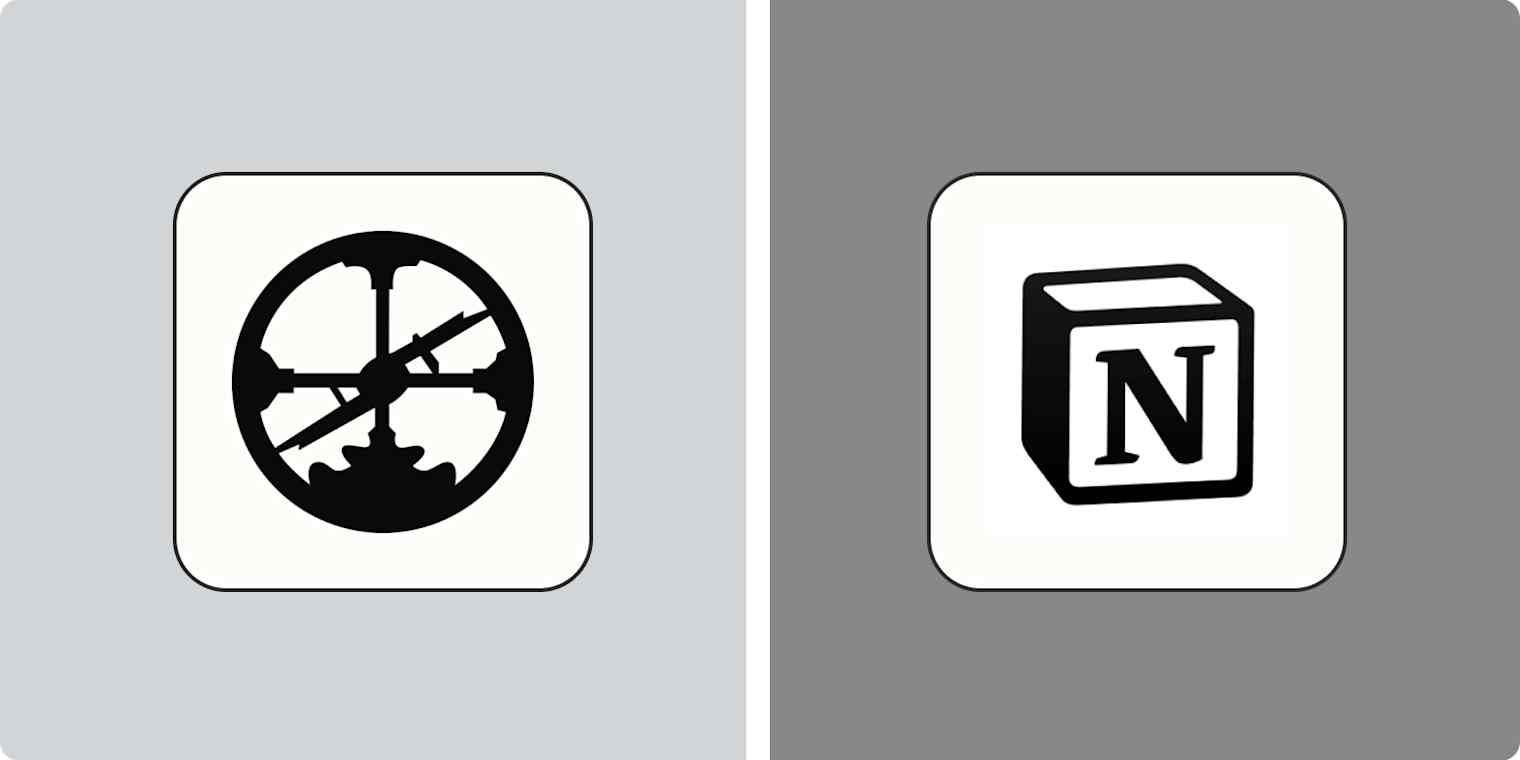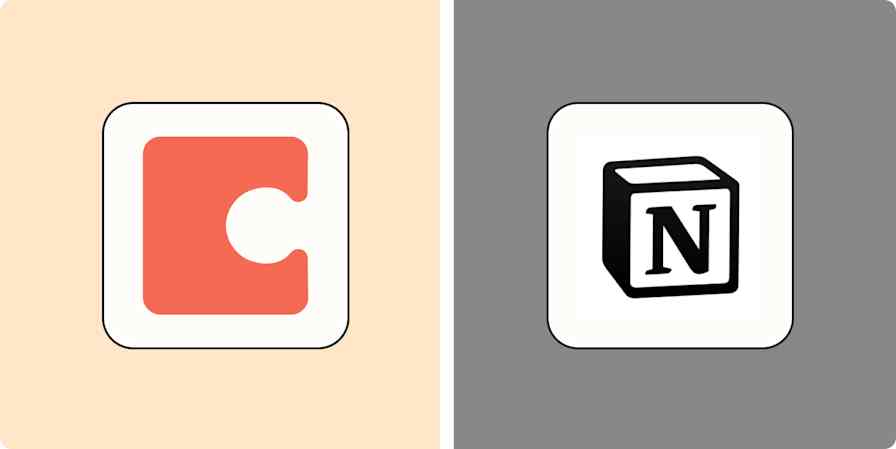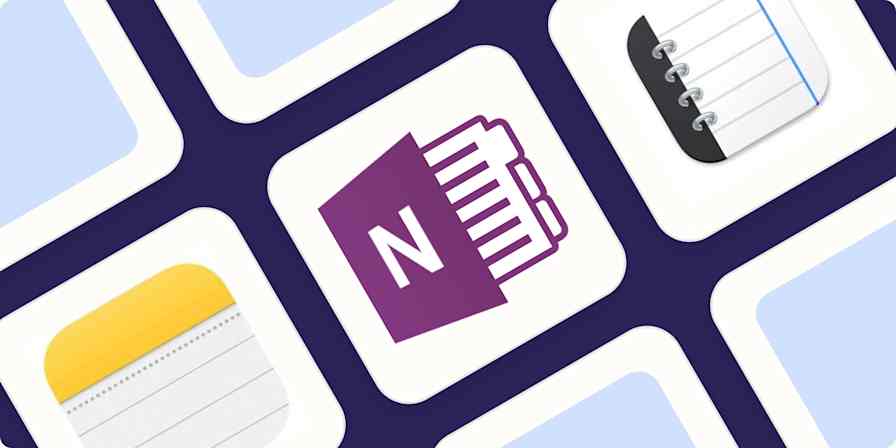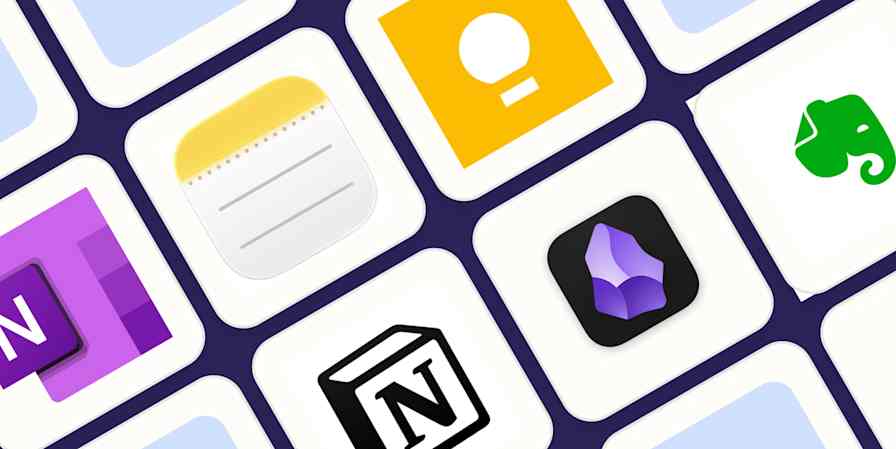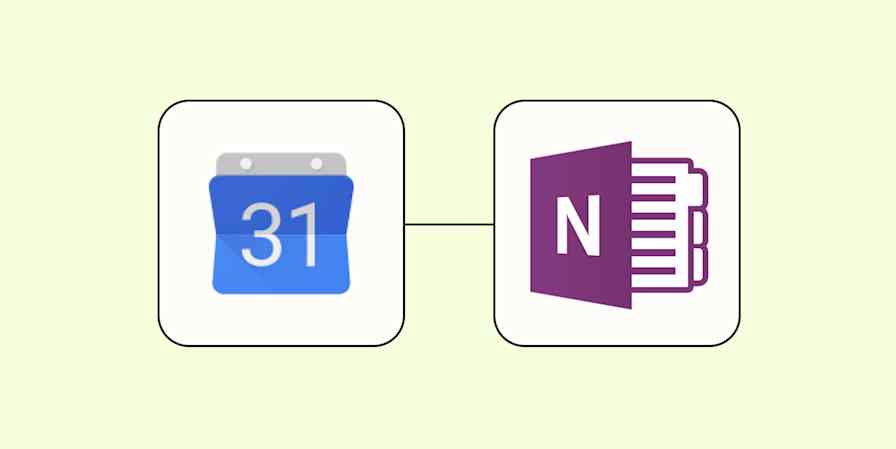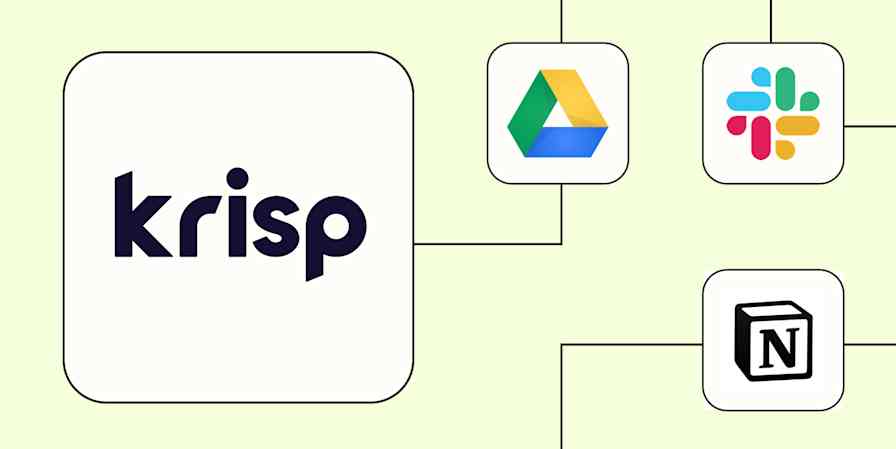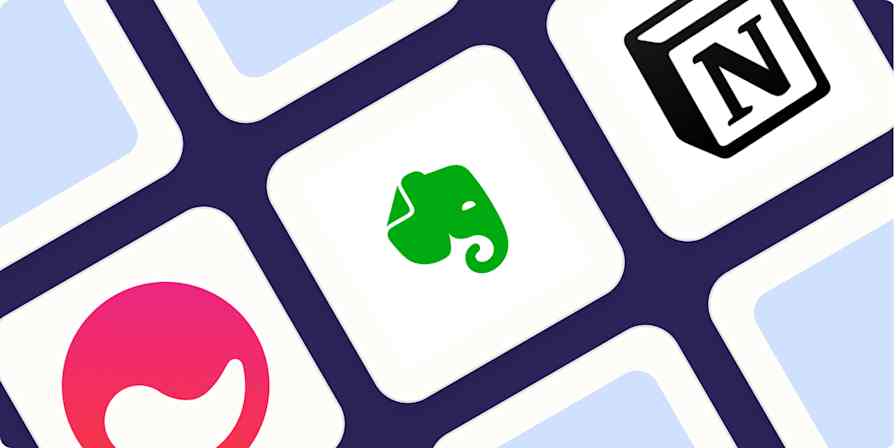In the information onslaught that is the internet, finding the right tool to organize your research and notes is a challenge. It's certainly been a challenge for me: I've been looking for almost a decade and still haven't found anything that works exactly as I want. It's probably me.
My brief here was to write a review of two note-taking apps: Roam Research and Notion. But Notion wants you to know that it's more than a note-taking app.

Roam, on the other hand, is clearly focused on note taking and organizing research, with a goal to help people "have better thoughts and solve intractable problems."

The variable flexibility of each tool makes it difficult to compare them apples-to-apples. But I soldiered on by focusing mostly on their value for research and note-taking. After spending a ton of time with each app, here's what I found.
Notion vs. Roam: The big picture
Let's start with the terminology each app uses to describe its building blocks.
Notion works through databases, which you can connect or group through pages. Each database also exists as its own page. Within each page, each discrete piece of content you add is a block.

Roam is built around graphs, which is a fancy name for a file that holds a collection of pages.


Within each graph, you can have unlimited pages connected through bidirectional links. You easily create a bidirectional link by putting a word or phrase inside [[double brackets]]. You can customize each page visually, but the page remains organized as a large bullet list. Each bullet is a block that can be formatted or used to embed external content.
Both Roam and Notion use contextual dropdown boxes that show block options by typing a forward slash /:

One huge drawback in Roam is that you can't connect graphs to each other. Apparently, more advanced Roam users agree with me, and there may be a third-party tool available soon to remedy this oversight.
So, with the basics behind us, here's a quick look at the Roam Research vs. Notion comparison—keep reading for details on my experiences with both apps.
| Notion | Roam |
|---|---|---|
Onboarding | ⭐⭐⭐⭐ Large library of videos from Notion and third parties | ⭐⭐⭐ Well-organized Welcome and FAQ wikis; strongly recommends joining Roam support forums |
Use case customization | ⭐⭐⭐⭐⭐ Possibilities infinite, which can make it feel overwhelming; the enormous ecosystem of third-party Notion templates (free and paid) eases the transition | ⭐⭐ Less customizable than Notion, but can be used for more than note-taking
|
Integrations | ⭐⭐⭐⭐⭐ Built-in integrations with many popular apps, including Zapier | ⭐⭐⭐ Can integrate with other apps through its API; easier path is through Zapier and the Roam Bot, but it's not affiliated with Roam Research |
Pricing | ⭐⭐⭐⭐⭐ Four plans from Free to Enterprise; the two mid-tier plans (Plus and Business) range from $8/user/month to $18/user/month
| ⭐⭐ No free version, but has a 31-day free trial; the Pro version is $15/month or $165/year; the Believer plan is $500 for five years; discounts available for students and academics |
Web clipper | ⭐⭐⭐ Captures the full text of the article without the extra garbage, but you're limited in where you can drop it; you may need to move it once in Notion to get it where you want it | ⭐ Free, third-party web clipper available; copies text over in bullet point format rather than article format
|
So which is better for note-taking and organizing thoughts?
Notion is easier to use and less expensive. If you want an app that can work for your information organizational needs, and you also like its usefulness for other tasks, Notion is the better option.
Roam is very tailored to hardcore researchers and tech folks. If you gather a lot of research and information that you want to go back to often and want a tool that might help you discover connections and nuances from your notes and research that might not be obvious, Roam Research may be for you. Those who've been willing to climb its steep learning curve and "get it," seem to love it. Hence, the #roamcult hashtag.

To put it simply, if you're looking for a Notion alternative, Roam probably isn't it—it's a very different app with a very different audience in mind.
Notion is more structured; Roam was built to work like your brain
Notion's databases and pages work together through hierarchical and relationship structures. To centralize or connect databases, you need to create each structure and define their relationship.
It can be hard to master Notion's building blocks of databases, pages, relationships, roll-ups, and sub-pages, as they all work with each other to set up the hierarchy, relationships, and navigation you want. Frankly, I've not achieved mastery yet to organize my research in the way that works best for me.
In contrast, Roam Research was built to work like our brains, organically creating pathways of connection without taking us out of the flow of what we're doing in the moment. Roam is all about identifying and surfacing connections among whatever you're researching.
Creating a bidirectional link in Roam takes no more effort than putting [[double brackets]] around the phrase. After you do that for a phrase the first time, that phrase automatically appears in a dropdown list when you type the opening brackets.

Each phrase that's used to build bidirectional links automatically becomes its own page, where every reference to the phrase anywhere in the graph is added. Roam then goes one step further by scooping all references to the phrase, even if not within the double brackets, and adding them to the phrase page's Unlinked section.

One goal of bidirectional links is to centralize all uses of that phrase, both for easy reference and to uncover connections between research and ideas you may not have noticed. Roam helps with this discovery through its graph visualization.

The bidirectional link function is a powerful and intuitive element that lets you focus on your reading, ideation, and writing out thoughts without forcing you to shift gears mentally to add organizational properties and relationships.
Onboarding: Notion's ease vs. Roam's complexity
Both apps start by giving you a blank page that presents opportunity and overwhelm. Both also provide clear, easily navigable, starting places to learn how to use each app.

Notion's onboarding is much easier for two reasons. It has enormous libraries, stocked by Notion and third-party folks. That includes:
Articles, videos, and podcasts of how-tos
Templates (many free and some for a modest fee)
Zapier has free Notion templates available for all sorts of things: note taking, to-do list, reading list, CRM, and more—even a second brain.
I want to organize my research for articles I write, especially since I often write on the same topics and don't want to start my research from scratch. I tried a template in Notion designed for journalists to kickstart my research organization.

It's not exactly what I need for how I work, but I'm able to modify the template, which helps. I feel confident a research structure that works for me exists in Notion; I just need to fine-tune it.
Roam also has well-organized native and third-party resources, although its ecosystem isn't as large. There aren't templates, per se, but videos and articles where a Roam user shows you how they set up a graph or page to meet their use case.
This can be a challenge. While working with Roam's bidirectional link concept is super easy, I quickly realized that's the simple part. The tough part for me is that I still need a research/note-taking organizational structure that goes beyond connecting phrases and topics, and I don't see a path to get there with Roam Research that's easier or less expensive than the path Notion offers me.
Roam has a marketplace for third-party extensions. They're mostly tools that help you do more things in Roam, and many of them seem to take some command line work—not an inviting option for non-technical people.

Notion's onboarding gets you into something workable fast, even if not perfectly optimized yet, surpassing Roam's onboarding experience.
Collaboration: Notion excels at it, but Roam might catch up
Notion's hyper-flexible functionality and pricing model push towards increased collaboration. The Free plan allows the page owner to invite guests to access the page (with limited collaboration). Once you upgrade, you'll get a lot more collaboration features—the highest-tier plans even have tools for things like workspace analysis. Because Notion is meant for collaboration, it provides multiple access levels, so granular security can apply to pages and databases.
Roam, on the other hand, was built with the goal of helping an individual boost their creativity and uncover overlooked connections in their research—basically, to help someone think and process their notes better. It was designed as a solitary tool, but it's working to grow beyond that.
You can share a hosted Roam graph. Users have expressed security concerns, as each hosted Roam graph is a public link, albeit hard to find if someone hasn't shared the link with you. Officially, you can set read or editor access to a page. You can create local graphs, but you cannot share them. The gist: Roam realizes it's a poor collaboration space and is working to improve its collaboration features.
Look and feel: Roam loves its bullet lists, but both offer visual customization
Both apps are minimalist out of the box. Notion offers a variety of views for the same information and lets you create highly visual pages and dashboards. Here's a calendar and list view of a project task list, as an example.


Roam also has format commands you can use to brighten things up and to create a visual organizational language, but it's still all happening within bullet lists.
Both offer good side-by-side windows for looking at and working in two pages at once.


You can also embed external notes and content from other sources into both apps. But only Notion has robust integration options, both natively and through Zapier. For example, you can easily automate Notion, so you can automatically create GitHub or Jira issues from database items or send new tasks or parsed emails directly to Notion.
Create GitHub issues from new items in Notion databases
Generate Jira issues with new Notion database items
Create database items in Notion from newly-parsed emails
Zapier also connects to Roam, but it's through another third-party tool called roam-bot.
Time to choose: Notion vs. Roam Research
Despite Roam's name, I think as an app, it's more ancient Greece to Notion's ancient Rome. Notion is more robust and expansive, geared towards capturing information to get things done. Roam is more cerebral and exploratory, meant to help people glean insights and develop solutions.
If you're doing academic research or deeply exploring a few topics—and don't mind digging in to customize something really useful through extensions and APIs—Roam can work for you. Having said that, people do share how they've used Roam successfully in other practical ways, such as a CRM or task manager.
Notion is a great platform for storing and organizing notes, and accessing and re-using them through a variety of other pages. For example, you could connect a meal planning calendar with a recipe database and a pantry inventory list. You can even create a website with it.
Notion's greater flexibility and friendlier pricing make it a great option as a tool with wide applicability, well beyond note taking. If you want a tool to share information and research collaboratively, either internally or with clients, then Notion is likely the better choice.
As a final note, since everyone's talking about AI: Notion has recently rolled out a native AI engine. True to Roam's way of going about things, it doesn't have a native AI, but there is an extension that lets you integrate it with GPT-3.
Related reading:
